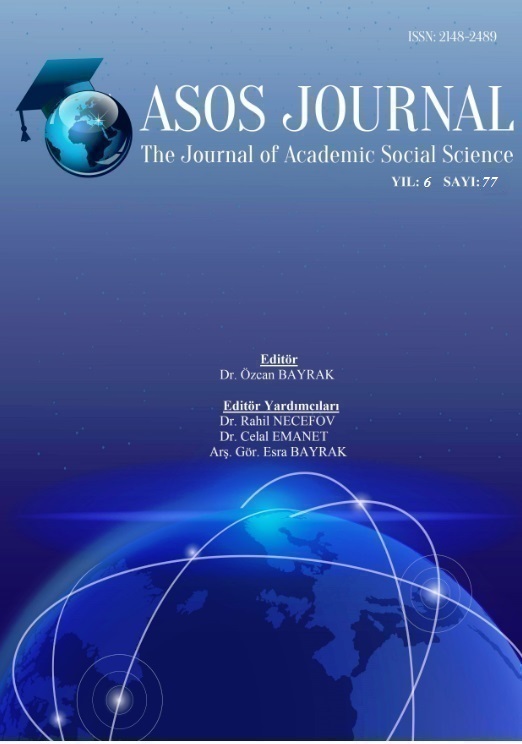YEDİNCİ VE SEKİZİNCİ SINIF ÖĞRENCİLERİNİN DOĞRUSAL DENKLEMLER KONUSUNDAKİ BİLGİ VE BECERİ DÜZEYLERİNİN İNCELENMESİ ÜZERİNE BİR ÇALIŞMA
Author :
Abstract
Cebirsel konular gerektirdiği soyut düşünme becerisinden dolayı öğrenciler için öğrenilmesi güç konular arasında yer almaktadır. Özellikle ortaokul seviyesindeki öğrencilerin soyut düşünme becerileri yeni geliştiği için, bu durum cebir öğrenimini zorlaştırmaktadır. Ortaokul matematik müfredatında geniş yer kaplayan doğrusal denklemler, cebirsel konuların öğrenilmesi için temel yapıtaşı olarak bilinmesi gereken konular arasındadır. Bu konu, ülkemizde ortaokul yedinci sınıf seviyesinde derslerde yer almaya başlamaktadır. Bu sınıf düzeyindeki öğrencilerin doğrusal denklemler konusunu anlamlandırarak öğrenmesi sonucunda, ilerleyen süreçte diğer cebir konularını öğrenmeleri kolaylaşacaktır. Bu nedenle, bu araştırmada Türkiye'de Erzurum ilinde bulunan okullar arasından rastgele olarak belirlenen bir ortaokulun yedinci ve sekizinci sınıf öğrencilerinin doğrusal denklemler konusundaki bilgi ve beceri düzeyleri ile bu konudaki hata ve eksikliklerinin belirlenmesi amaçlanmıştır. Bu amaçla, araştırmaya katılan öğrencilere araştırmacılar tarafından açık uçlu olarak hazırlanmış olan bir doğrusal denklem testi uygulanmıştır. Elde edilen verilerin analizi, betimsel analiz aracılığı ile gerçekleştirilmiştir. Elde edilen bulgular ışığında, araştırmaya katılan öğrencilerin doğrusal denklemler konusundaki bilgi ve becerileri ile hata ve eksiklikleri rapor edilmiştir.
Keywords
Abstract
Algebraic issues are among the difficult topics to learn for students due to the abstract thinking structure they require. This makes it difficult to learn algebra, especially since the students in secondary school develop new abilities of abstract thinking. Linear equations that cover a large part in the secondary school mathematics curriculum are among the subjects that should be known as the basic building stone for learning algebraic subjects. This issue is beginning to take place in the seventh grade of junior high school in our country. As a result of learning the meaning of linear equations in this class level students, it will become easier to learn other algebraic subjects in the process. Therefore, we aimed to determine the knowledge and skill levels on linear equations Erzurum seventh and eighth grade students of a secondary school designated as random among schools in the province in Turkey with errors and omissions on this issue in this investigation. For this purpose, a linear equation test, which is open ended by the researchers, was applied to the students participating in the research. The analysis of the obtained data was carried out through descriptive analysis. In the obtained findings, the knowledge and skills, errors and deficiencies of the linear equations of students participating in the research were reported.





